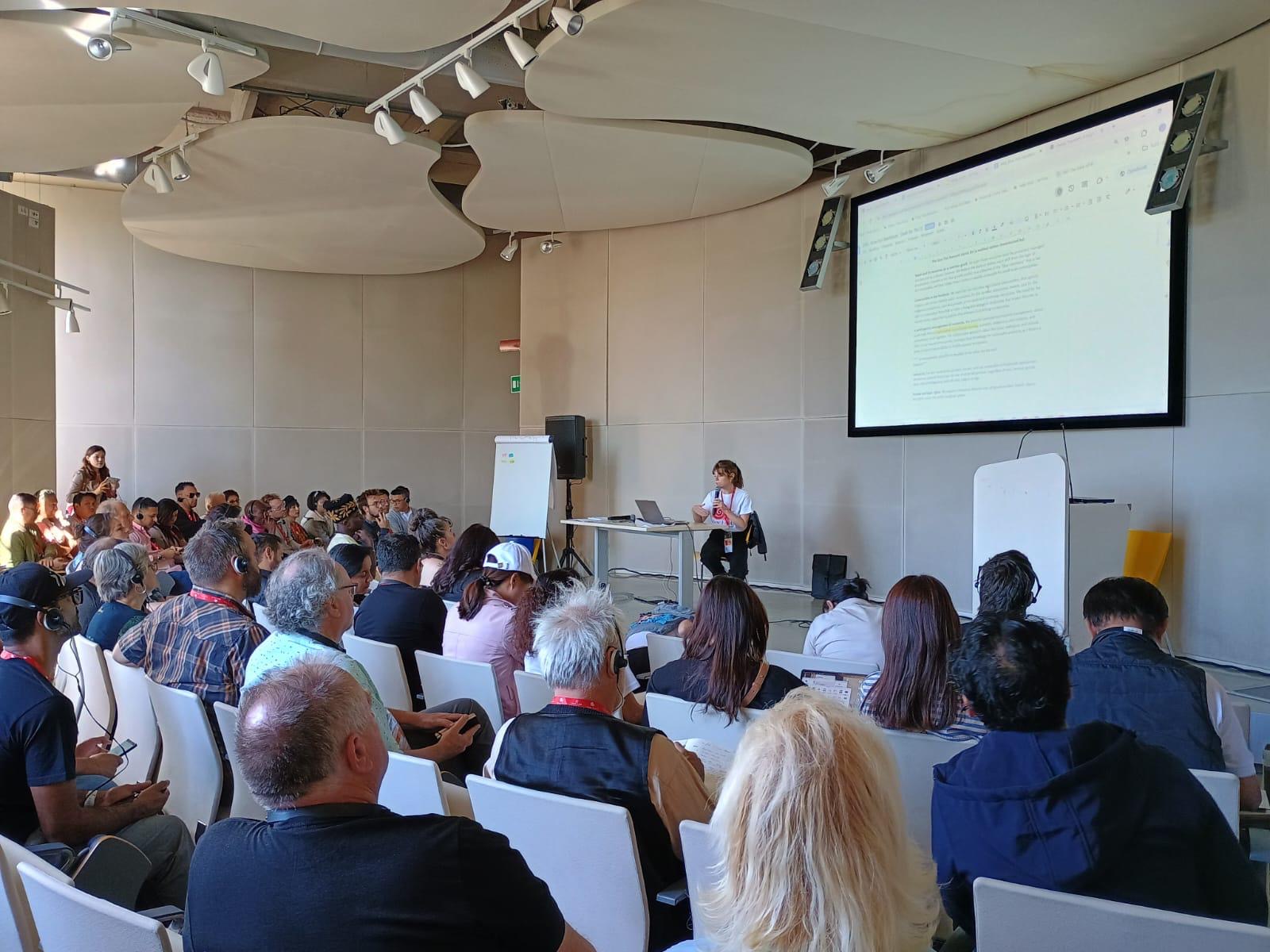Imagine the largest farmer’s market you’ve ever been to. Now imagine that market 50 times bigger. Now double that, and throw in a bit of a New Orleans Jazz Fest vibe (lots of food and people) and a wonderful mélange of different dialects, clothing styles, and tantalizing food aromas from around the world at booths on a massive complex of huge tents spread out over an area of many football fields.
Welcome to Slow Food Terra Madre Salon del Gusto 2024 in Turin, Italy.
Terra Madre is a biannual gathering of Slow Food folks from around the world to celebrate food that is good, clean and fair. This means food that is locally produced, is healthy and free from unwanted chemicals, supports local communities, and supports independent producers, be they farmers or seafood harvesters.
This was my first Terra Madre, and the event’s 20th anniversary, and my experience overflowed. The theme was “We are Nature.”
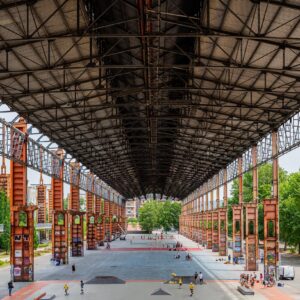
Parco Dora, site of Terra Madre. Now imagine football field-sized tents under the roof and also spread outside of the covered area. Photo: Slow Food International
Relationships are our greatest resource
I was invited by the Slow Fish International team to be one of 5 storytellers from around the world to talk about the work we’re doing in our countries to support local seafood systems during the Slow Fish Global Assembly. This was a gathering of Slow Fish delegates from around the world to hear about the roadmap for Slow Fish International from Network Coordinator and colleague Chiara Palandri, who organized the Slow Fish activities at Terra Madre.
It was both an honor and an opportunity to share the work Slow Food USA Programs Director Mara Welton and I have done over the past two years to bring Slow Fish values, stories, and content to Slow Food communities across the country. I shared that we co-hosted 12 events in 8 communities and reached nearly 1,300 people through the Slow Fish Rising Tide program. I described how Slow Fish Chefs Camps create space for local fisherfolk to build relationships with chefs and seafood eaters in their towns and cities, while bringing more chefs and communities into the conversation about why they should care about their seafood’s origin.
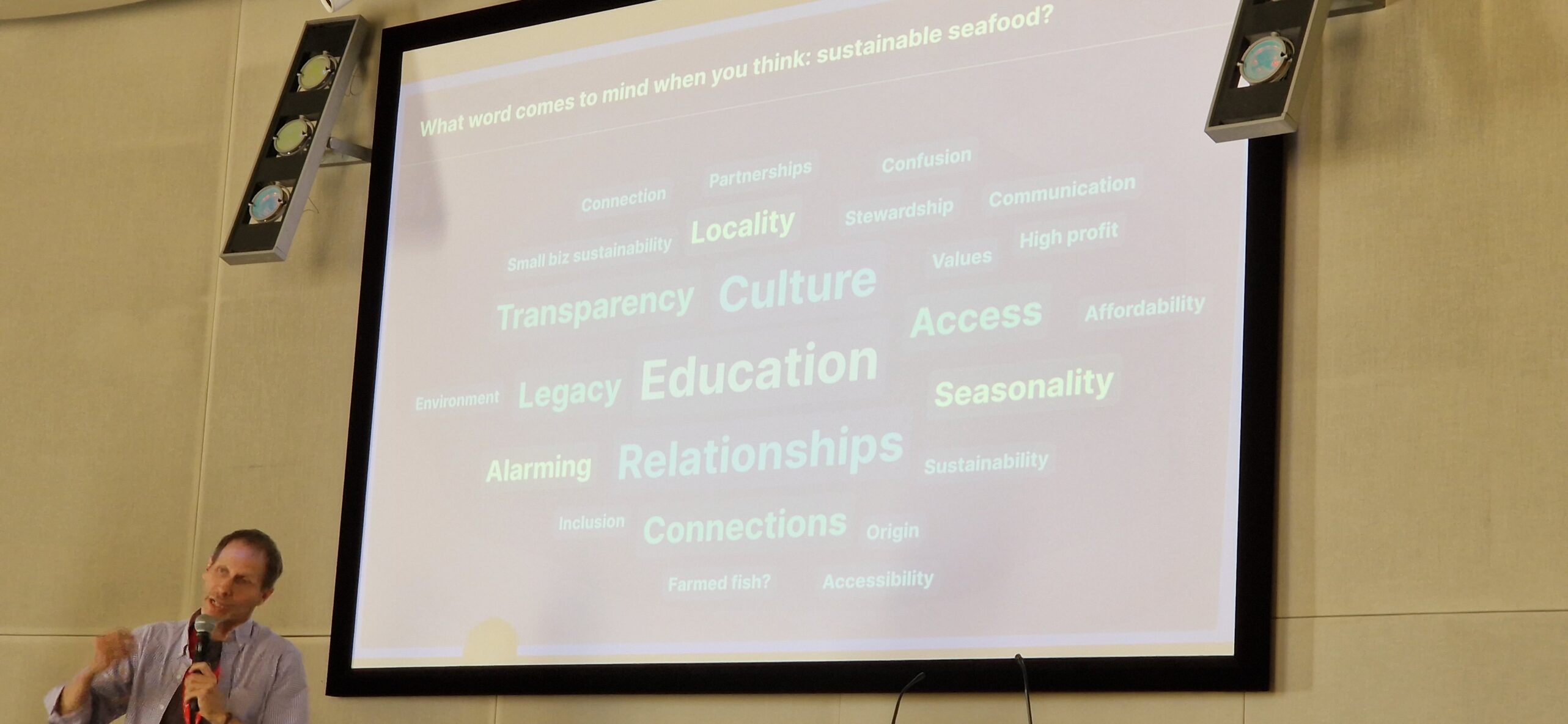
Colles sharing a Word Cloud from Chefs Camp in New Orleans in front of the Slow Fish Global Assembly. Photo, Jan Versteeden from Pintafish.
I showcased how we brought more folks in Slow Food communities into the conversation about why local seafood matters during KNOW FISH Dinners®. They learned the story of the seafood they were eating from those who harvested it. I offered Seafood Throwdowns as another community engagement where two chefs prepare the same seafood in different ways and the audience votes on the winning preparation.
We talked about how relationships are our greatest resource for building community around local seafood systems, and that those relationships, built on trust, will help us incrementally grow our movement supporting good, clean, and fair seafood. I shared the 7 C’s of Sustainable Seafood as a useful tool for helping educate folks on how to frame their next seafood decisions based on Slow Fish values.
SFNA storytelling
Slow Fish North America also hosted a separate conversation at the Slow Food North America booth, where political boundaries blurred amid collaboration on shared values, cultural narratives and a focus on food that is good, clean, and fair. During the Slow Fish North America discussion, we heard stories from network folks working to support local fishing communities and local seafood systems.
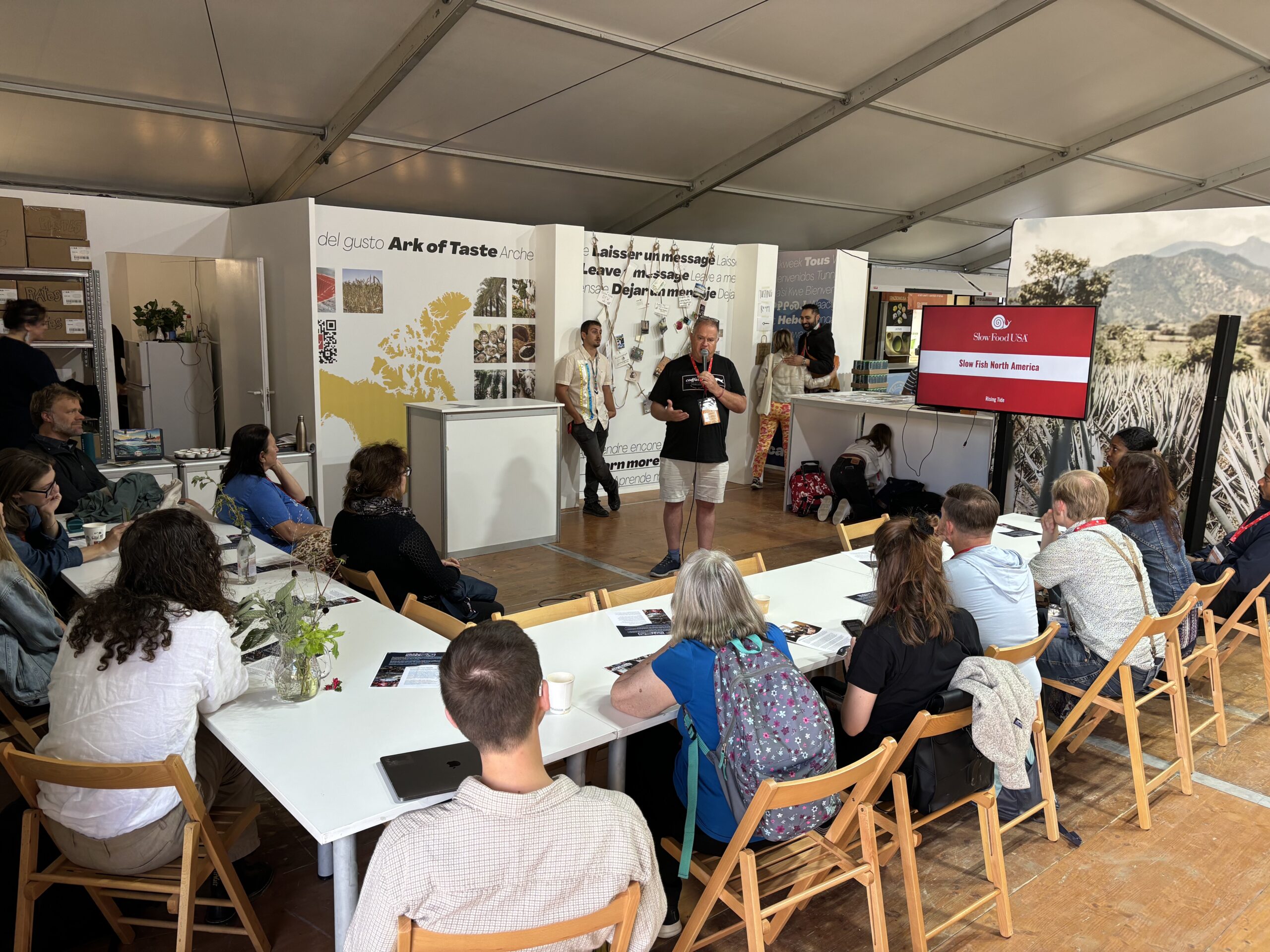
Jon Crofts discusses expanding consumer palates.
Jon Crofts, who owns Codfather’s Seafood Market in B.C. and is a veteran of multiple Slow Fish events, described how he has evolved his business to introduce more customers to new seafood species while still supporting local fishermen. He described the successful launch of the new Fish for Life box, a periodic delivery of assorted seafood featuring local, seasonally available, and often unfamiliar species direct from local fisherfolk.
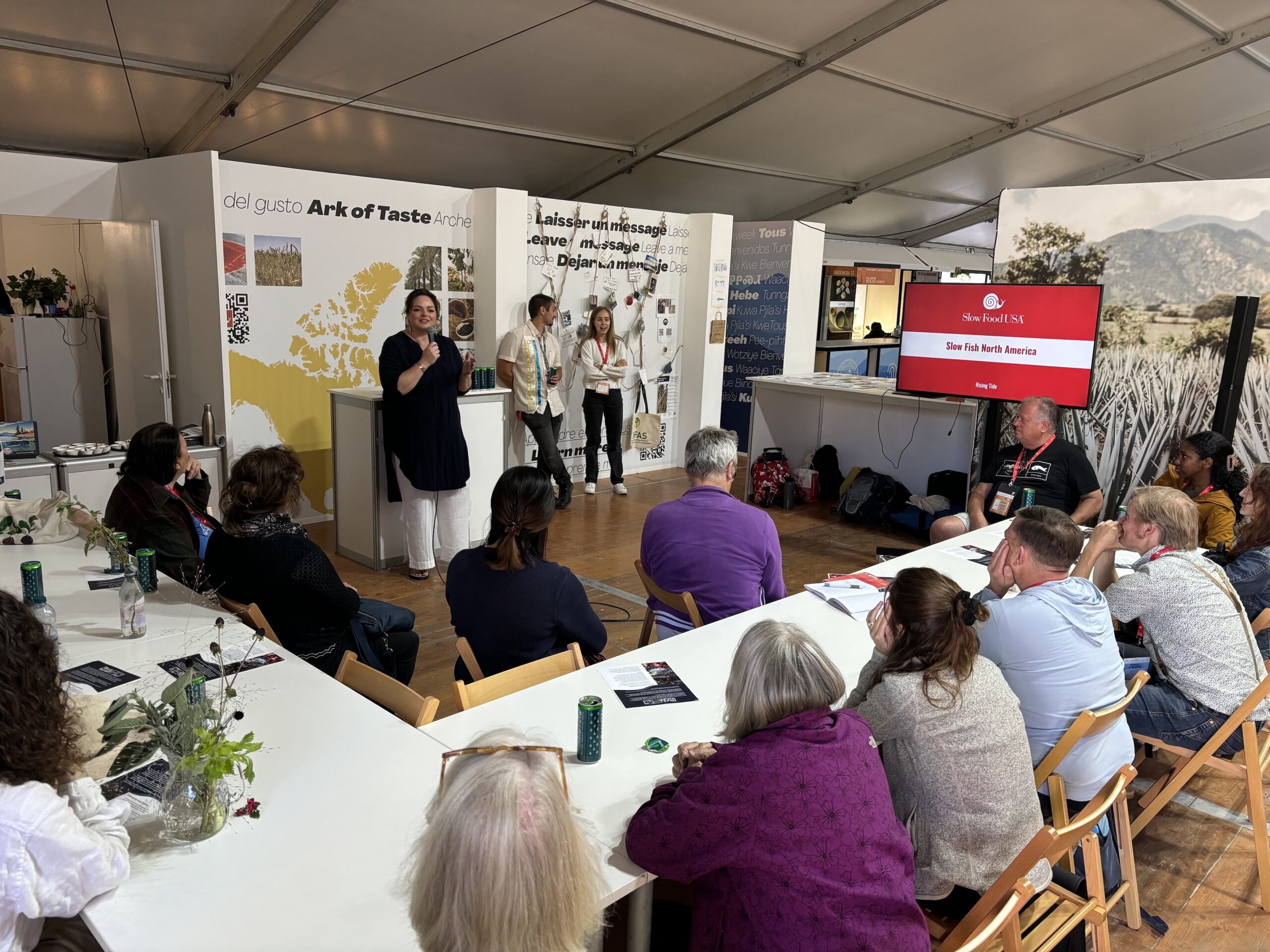
Emily Orr describes the importance of supporting local fishing communities.
Emily Orr, executive director for T. Buck Suzuki, talked passionately about supporting local fishing communities in the face of climate change and shifting policies. She emphasized the need for providing support and training to the next generation of young fishermen and women through programs like the B.C. Young Fishermen’s Network.
Scott Steen of Slow Food in the Tetons described how forged friendships begun nearly 9 years ago with Capt. Matt Luck and Capt. Steve Kurian of Pride of Bristol Bay led to a buying club in Jackson, WY. where some 300 members have access to beautiful wild sockeye salmon and other species harvested in Alaska.
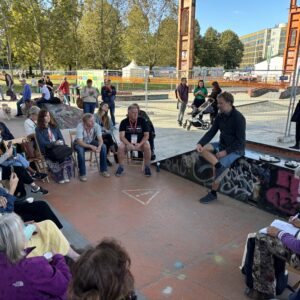
Scott Steen talks about building relatioships with Pride of Bristol Bay to bring wild caught salmon to Wyoming.
The message
How do I know we successfully got the message across in both the Global assembly and the SFNA conversation? The number and quality of questions during and after the conversations showed folks were truly engaged and wanted to learn more. Several people from around the world took my card and gave me theirs, asking to talk in the future about how they can bring similar Slow Fish programming to their communities. Slow Fish delegates from Chile, the Democratic Republic of Congo, Morocco the Philippines and Japan are all interested in using the Rising Tide model to build community around local seafood in their areas, starting with a budding relationship begun in Turin two weeks ago.
One other seminal moment confirmed for me why I was at Terra Madre. As I was conducting one-on-one conversations with folks at a booth, a young couple from Colombia said they wanted to support local fishermen in their community, but didn’t know how. They were bakers, and they worried that much of the seafood available in local stores was not from fishermen in their community. So I explained the importance of education, and described some of the Rising Tide engagements as possible ways of connecting the community and local chefs to local fishermen.
One of the bakers pulled out his phone and asked if he could record me so he could share the message with fishermen and chefs in his community.
We set out to hold up the work we’ve done in the past two years as an example of how this could be replicated elsewhere. Terra Madre was a great platform for doing that. We’ve built some new relationships with great potential.
And we’ll bring that momentum and those stories to Slow Fish 2024: Charleston.
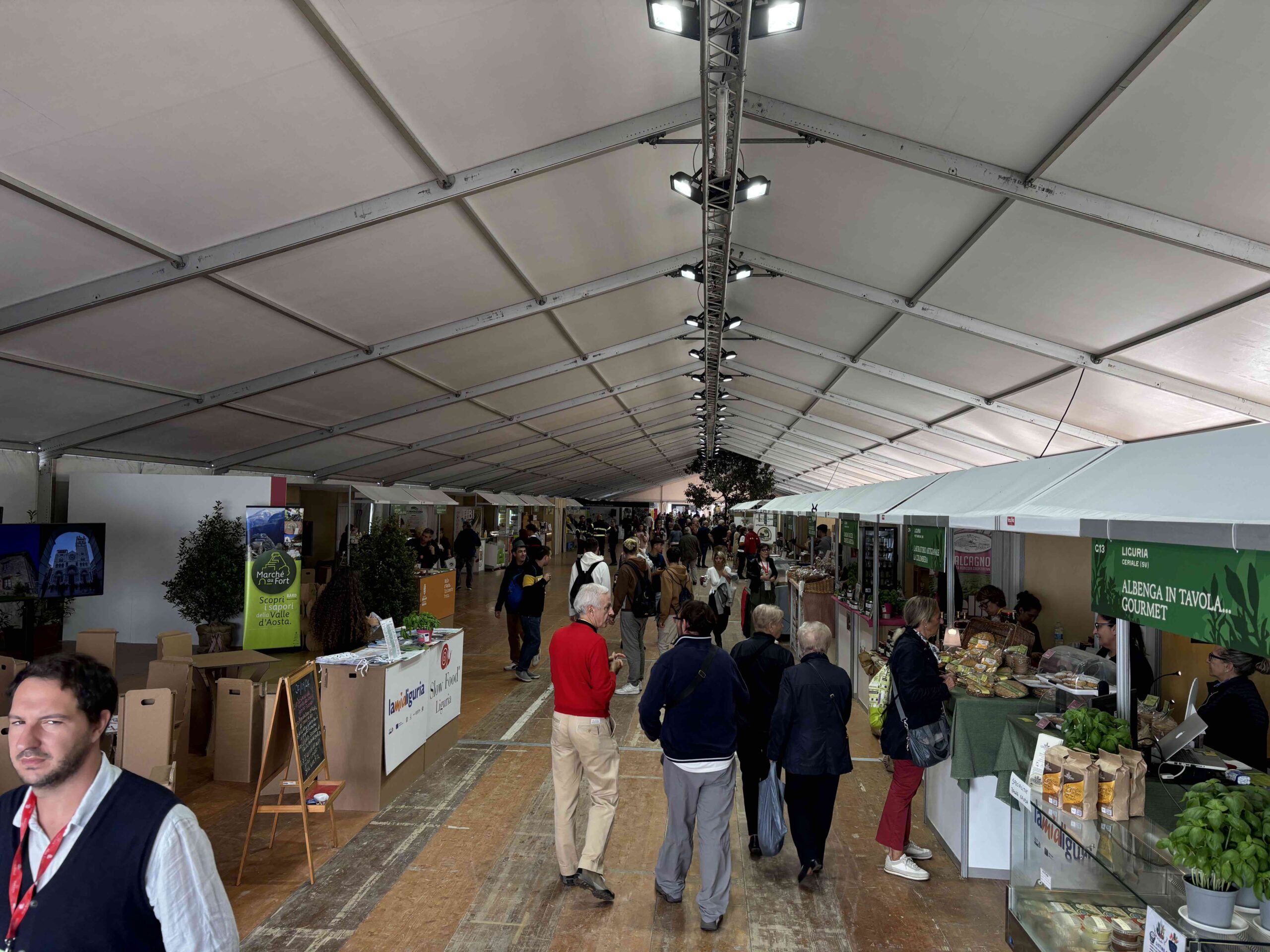
One of several tents representing Italian regional food. On the weekend, the crowd was so thick it would take 15 minutes to get from one end to the other.
The food
I cannot talk about Terra Madre without talking about the stunning range of culinary adventures spread out over the campus. Loaves of bread the size of tractor tires; smoked mozzarella hung from string in fat teardrop shapes; red wine colored prosciutto legs either hanging or on a spit for carving and sampling; tortellini shaped crackers seasoned every which way you can imagine; delicate amaretto cookies; and all kinds of chocolate. (Pro tip, don’t sample five different types of honey, four different jams and chocolate in one morning. You won’t come off the sugar high for quite a while.)
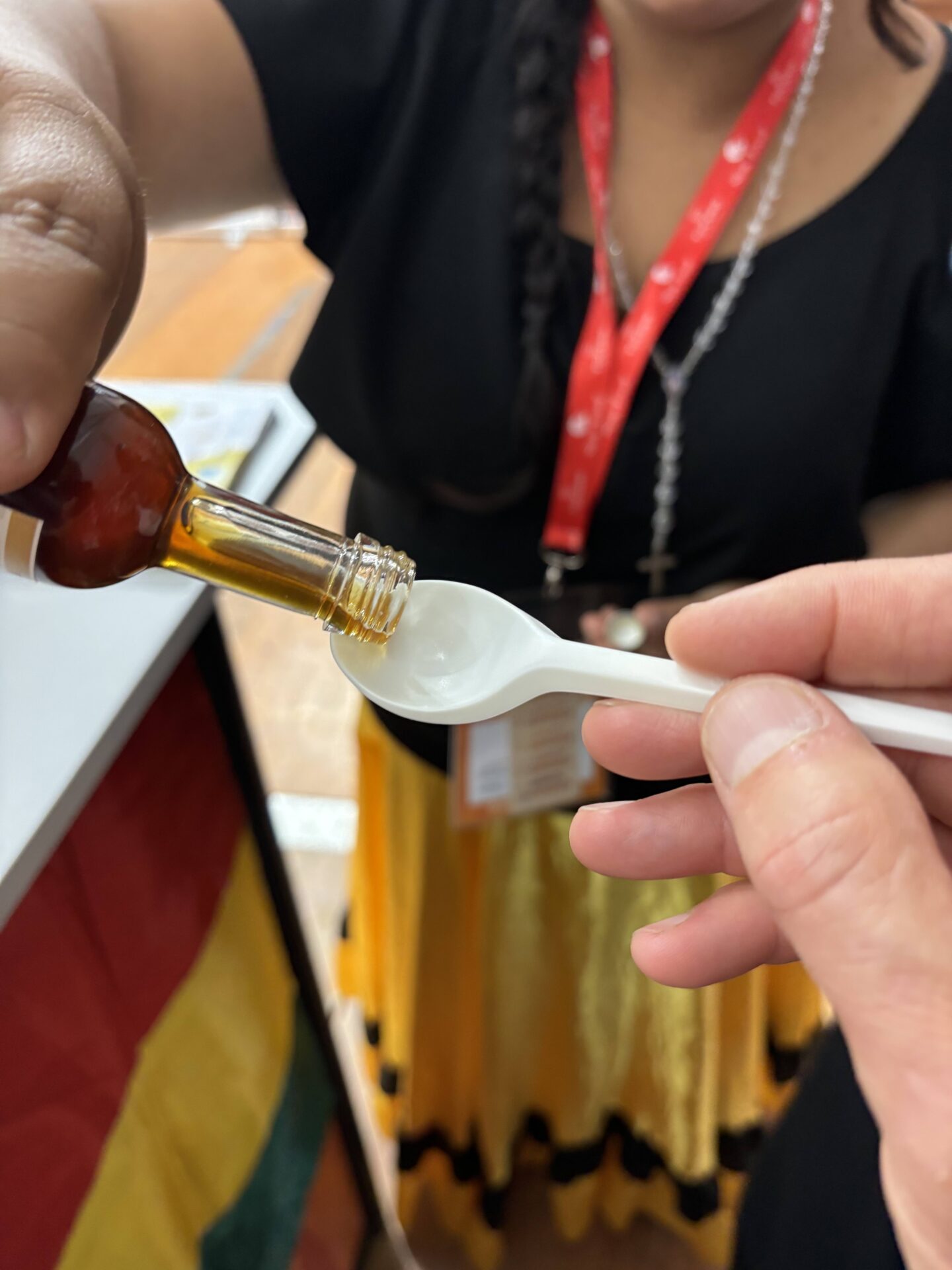
I had a really hard time with tasting restraint, particularly around the honey and jam booths.
And that’s just the Italian part of the market, which was spread out by region across multiple tents.
Also on display for the tasting were foods I’d never previously conceived of from International Slow Food communities, including kabsa (a Saudi Arabian dish with flavorful rice and tender goat meat); and piaya (a muscovado sugar filled flatbread from the Philippines). The date ice cream from the Saudi tent was on another plane.
Indigenous delegates from Slow Food Turtle Island in North America shared unique tastes such as blue corn tamales and blue corn mush with blueberries that were rich in flavor and steeped in cultural backstory.
Those taste memories will frame the experience of a global community coming together to share stories, ideas, food, and culture all in support of building sustainable, values-based and community-oriented food systems built on trust and relationships.
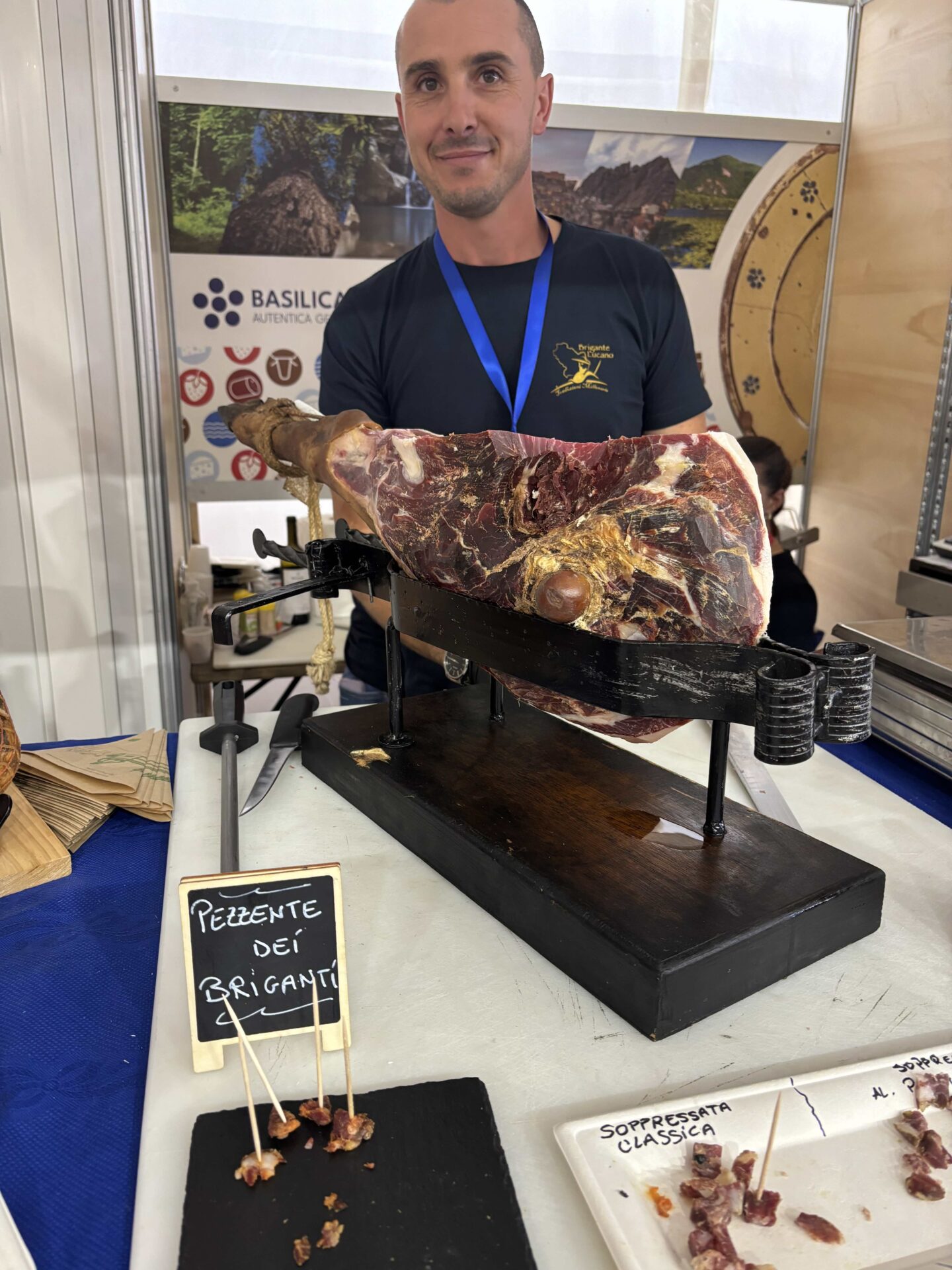
Prosciutto sampling was exceptional. Sharing the photo is obligatory.
Top Photo: At the Slow Fish Global Assembly, Slow Fish International Network Coordinator Chiara Palandri discusses the Slow Fish Manifesto, which is the network’s roadmap for the next few years.


